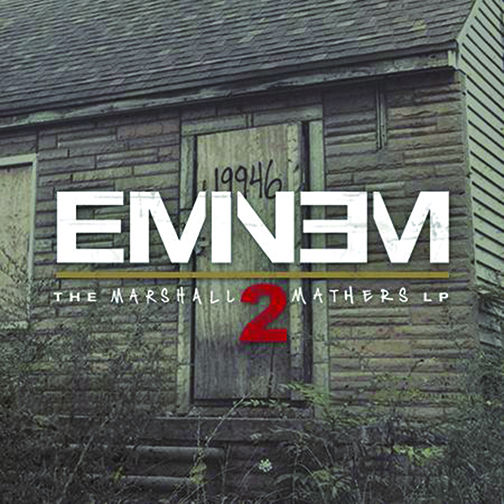Eminem’s new LP a nostalgic hit-and-miss return to his roots

The album often makes references to Eminem’s third album.
We all know by now that rap music is definitely in a Renaissance period, but as with everything in life, it comes with a cost that we are not paying, but may still hurt us. With all the new rappers constantly dropping acclaimed albums, the legends of the game find themselves suddenly on the defensive. Kanye West managed to keep himself going with the innovation and rawness of “Yeezus” despite struggling sales, whereas Jay-Z had to rely on a Samsung promotional campaign to move his phoned-in record. And next on the list is Eminem, who is jumping into the mess with “The Marshall Mathers LP 2.”
It is bad enough that there is a huge crop of talent to fight, but to make a part two to one of the most acclaimed works of your career? Shady likes his handicaps.
I was pretty excited after hearing the first three singles, because it sounded like Eminem was not going down without a fight, especially when “Rap God” came out and blew a crater in the Internet with some of the fastest rhymes in the west (10.4 syllables a second!!).
Then I got the album to find out it was a giant nostalgia trip, from the classic rock sampling beats to the references to ’90s icons like Monica Lewinsky, the Backstreet Boys and ‘N Sync, among others. While I will admit there are great moments with that approach (“Berzerk,” “Rhyme or Reason”), the revival of the Slim Shady character seems hokey and immature at times (see “So Far…” and “Stronger Than I Was” for the most egregious tracks). I would also like to single out the Rihanna collaboration “The Monster” for being way too upbeat for its subject matter.
While it is a mixed bag song-wise, Eminem’s rhyming keeps this LP strong, especially when he is in his center as an vengeful word demon with his middle fingers pointed squarely at the world. But I am sure no Eminem fan ever expected to hear him apologize to his mom, a frequent target of scorn in past songs, like he did in the Nate Ruess-aided “Headlights,” or take himself to task for misogyny and homophobia on the “Stan” sequel “Bad Guy.”
It is those flashes of maturity that reminds us why he became so exalted in the first place when all the controversy died.










